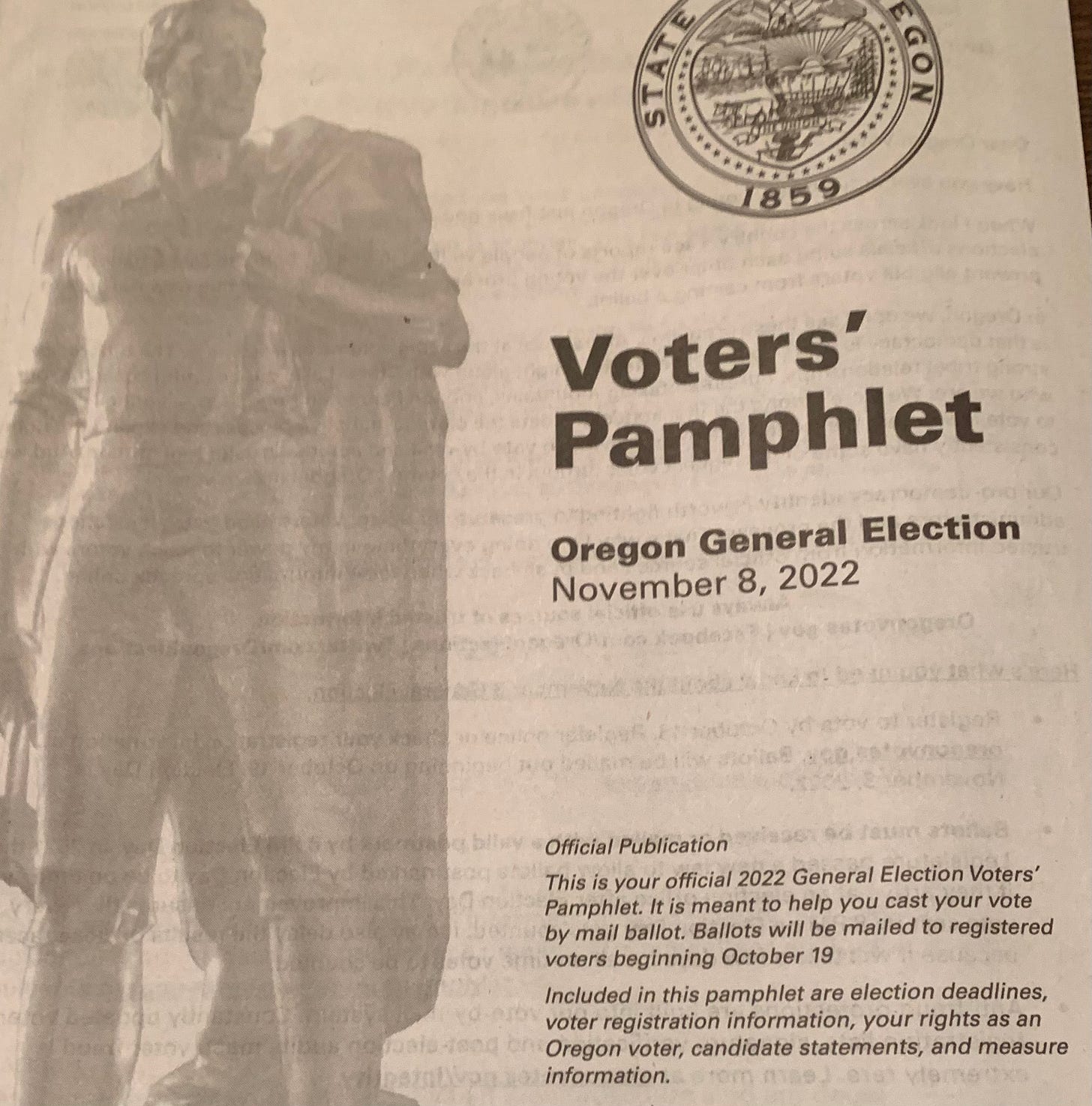Voters should focus on homelessness, government performance and the economy
As ballots arrive, gubernatorial candidates still have not provided adequate details of how they would handle the most important issues
Oregonians responding to surveys have been consistent in identifying the issues that concern them most. However, it takes more than linear math to project how those issues might affect the governor’s race.
Survey questions are phrased in different ways, but these issues consistently have been identified as Oregon’s top problems.
Homelessness/affordable housing
Public safety
Government ineptitude/partisanship
The economy
A fifth high-interest issue, abortion, emerged during the campaign because of the Supreme Court ruling striking down Roe vs. Wade.
The candidates’ stances on public safety and abortion are relatively easy to interpret. In each case, two candidates have similar stances with one as an outlier. Voters have clear choices.
However, it requires a complex mental algorithm factoring in candidates’ often vague or even contradictory stances and your personal preferences to select the best candidate to tackle the other three issues.
Here’s a look at each of those issues, the candidates stated positions and their qualifications to handle the issue.
Homelessness/affordable housing
The candidates agree that homelessness and the related issue of housing costs should be one of the biggest priorities for the next governor. Beyond that, it requires a little guesswork to determine exactly what each candidate would do and some imagination to believe that any of them are likely to solve the problem.
Generally speaking, Drazan and Johnson advocate a get-tough approach to moving the homeless off the street and building more houses, reducing regulations and promoting economic growth to improve affordability. Kotek leans more toward increased funding and regulation along the lines of measures already passed by the Legislature to “control” rents. Though Kotek has been more specific than Johnson and Drazan, it’s difficult to reach a conclusion about whether she can do what she promises in her plan – both because of political and financial costs and because of the sheer complexity of any effort to move people from the streets to permanent shelter.
The best voters can do is to determine which candidate has a philosophy most like theirs and whether that candidate has the temperament, attention to detail and management/leadership skills necessary to implement a complicated plan sure to be opposed by some no matter the election results.
Government ineptitude/partisanship
These are related but separate issues. All three candidates have strong leadership skills and experience. All three have shown an ability to both inspire and anger, depending on the issue and circumstance.
The biggest difference might be that one candidate, Kotek, will find it more difficult to suggest and implement changes that impose short-term hardship on rank-and-file state workers for the greater good and long-term gain. If Kotek wins, it largely will be because of the support of unions representing these workers. They won’t let her forget that.
Drazan and Johnson would have a different challenge: securing support for new legislation from Democratic legislators, who are likely to maintain control of both chambers.
The economy
First, it should be emphasized that the winner of the election will have relatively little short-term impact on the economy. Some of the factors currently slowing the economy either are beyond the control of the governor (supply chains), take time to correct (labor shortages) or are best addressed with federal fiscal and monetary policy.
However, effective state policy can limit the impact of national or global downturns. Historically, downturns usually have hit Oregon harder than most states. There are a few reasons for that, but a leading one is lack of economic diversity. So, the key issue to look at in the governor’s race is what candidates would do to not only retain existing employers but to attract new ones – especially in industries that have opportunity for growth and would balance the state’s economy.
In a tight race, the result likely will be determined by who voters decide can best handle these three issues. But, as Gary Conkling will discuss tomorrow, candidates have focused more on emphasizing their opponents’ flaws than explaining complicated issues.
Mark Hester is a retired journalist who worked at The Oregonian for 20 years in positions including business editor, sports editor and editorial writer.




